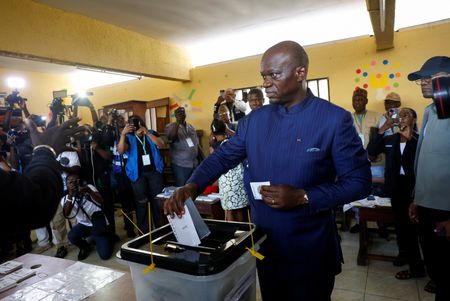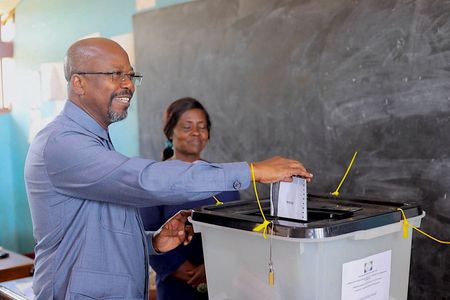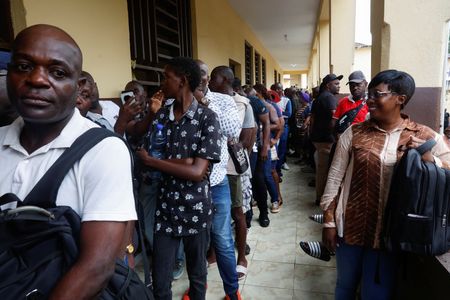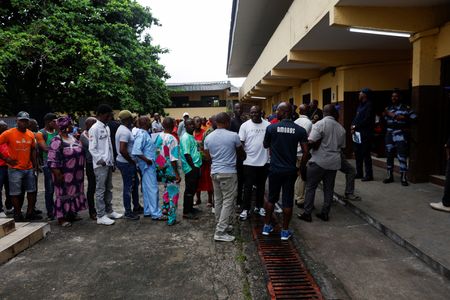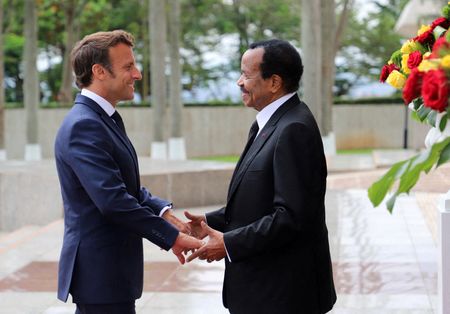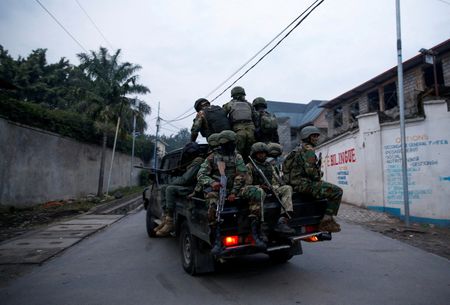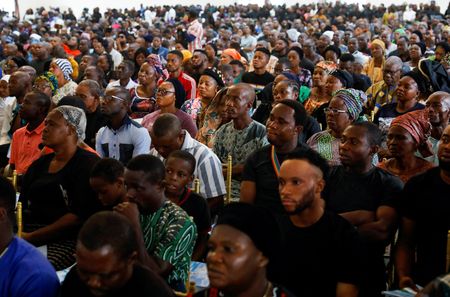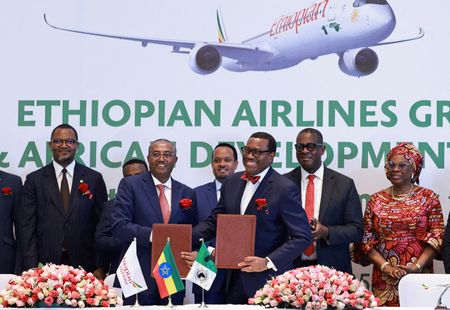By Gerauds Wilfried Obangome
LIBREVILLE (Reuters) -Gabon’s coup leader Brice Oligui Nguema looked to cement his grip on power as the oil-producing Central African nation held a presidential election on Saturday that analysts expected to be a one-sided affair.
Nineteen months after overthrowing President Ali Bongo, whose family ruled Gabon for more than half a century, Nguema, 50, has pitched himself as a change agent cracking down on the corrupt old guard.
Counting started shortly after 6 p.m. (1700 GMT) when many polling stations closed, though some stayed open for voters still queueing. The result was expected as soon as Sunday, with the winner receiving a seven-year term, renewable once.
In the 2023 election, Bongo was declared winner of a third term, but the opposition denounced the process as fraudulent, and he was ousted in a coup right after the result was announced.
Casting his ballot on Saturday at a school in the Libreville city centre, Nguema called the voting transparent and said the line of people waiting to vote was evidence that “Gabonese have regained confidence in the election”.
Lionel Ekambou, a 28-year-old nurse, woke up early to vote for Nguema, who has been interim leader since spearheading the coup as an army general.
“His social project meets my expectations and, I am convinced, will contribute to building a better future,” he said.
Criss-crossing the country in a baseball cap bearing his “We Build Together” slogan, Nguema vowed to diversify the oil-reliant economy and promote agriculture, industry and tourism in a country where a third of the population of around 2.5 million lives in poverty.
Yet not everyone believes Nguema represents a genuine break with the past. He is a former aide-de-camp for Ali Bongo’s father Omar Bongo, who was president for more than 40 years until his death in 2009.
“He sold us a dream,” Libaski Moussavou, 34, told Reuters before casting his ballot, accusing Nguema of surrounding himself with Bongo-era holdovers “whom the Gabonese people decried”.
Nguema’s main challenger was Alain Claude Bilie By Nze, who was serving as prime minister under Ali Bongo before the August 2023 coup, the eighth in West and Central Africa since 2020.
Nze, 57, voted in his hometown of Makokou. In a video sent to the media by his campaign, he expressed concern that unused voter cards left at polling stations could be used to stuff ballot boxes.
Nze has tried to distance himself from the Bongo family while challenging Nguema’s fitness for the presidency, telling Reuters this week that military men should “go back to their barracks”.
HEAVY FAVOURITE
Analysts say Nguema’s status as the front-runner comes from a sense that people were broadly happy with the coup and him being the most visible candidate during the campaign.
Nze’s close ties to the old government also undermined his warning that Nguema poses a threat to Gabonese democracy, said Florence Bernault, a historian of Central Africa at Sciences Po.
“He doesn’t seem to be very well placed to criticise,” Bernault said.
The economy in Gabon, a densely forested and sparsely populated country, grew by 2.9% in 2024, up from 2.4% in 2023, driven in part by infrastructure projects and commodities such as oil, manganese and timber, according to the World Bank.
But many voters told Reuters they were mostly concerned about basic services, citing power cuts that plague the capital.
“We talk about it every day,” said 40-year-old electrician Herve Regis Ossouami.
“I don’t know a Gabonese person who would say they don’t want water and electricity.”
(Additional reporting by Robbie Corey-BouletEditing by Alison Williams, Mark Potter and Frances Kerry)

